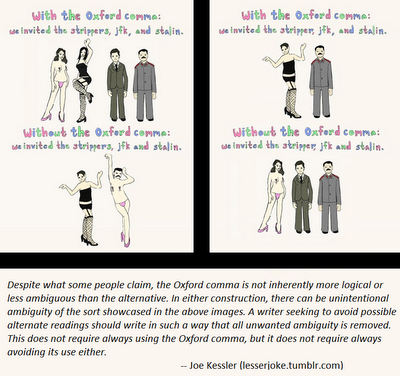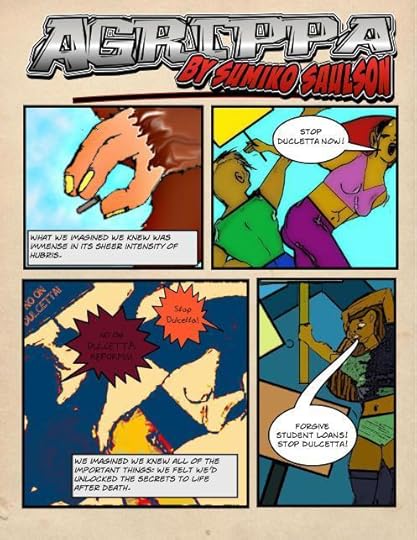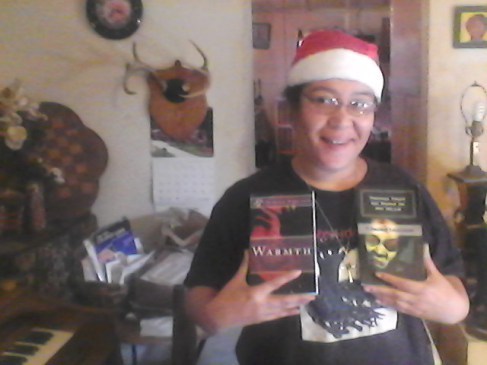Sumiko Saulson's Blog, page 58
December 17, 2012
If you want to be a writer: write.
The secret to becoming a writer is to write. It’s not complicated. As Joe Bob says, you’ll never become good at this thing without getting your practice in, and practice involves doing. I would like to elaborate. Here are a few simple ways to help yourself get into the swing of writing.

Believe it or not, you don’t actually NEED a USB Typewriter.
Write First – Criticize Later
I realize it’s easy not to do. We live in a world filled with discouragements. Distractions that can keep you from writing are often internal, rather than external: a series of “you will suck” voices nagging in the back of your brain. They cause you to stop before you start, and this is a form of destructive self-criticism paramount to self-censorship. If you let these voices take over, it will manifest as writer’s block.

Listen to your inner Roger Ebert instead… he’s giving your writing two thumbs up!
The best way to get on the opposite side of that is to write first, then go back and edit and improve what you have written later. Keep reminding yourself that first drafts do not need to be perfect. You can perfect your writing later.
Perfection Is Not Required
One of the biggest deterring factors for creativity is this false notion that everyone is going to immediately spit out a masterpiece. First of all, even if you really DID happen to run out there and churn out a masterpiece the first time out by some miracle or accidental occurrence of random chance, or perhaps because you are particularly brilliant – you wouldn’t necessarily be recognized for it in your lifetime. In his lifetime, John Keats received bad reviews and sold about as many copies of all three of his poetry books combined as – well, I have, of all of my books combined.

Tell your inner anal retentive to go take a hike while you’re writing – you don’t need him until editing time,
That doesn’t mean I am a genius, not at all. It does, however, mean that poor sales and bad reviews aren’t necessarily a gauge of the ultimate value of your body of work. Maybe someone who is reading this, IS a genius writer. Or maybe not. But if you want to create something: making things is good. It is a delightful exercise for the writer, and if we are fortunate someone else will delight in what we’ve created, also. But in order to be able to create in the face of possible criticism one must divorce oneself from the need to be perfect.
Don’t Compare Yourself To Others
When I published my first book, one of my friends told me she was afraid to read it, because if it was bad she would be afraid to tell me, and if it was good it would make her feel bad about her own writing. She was honest enough to say what many others who write secretly feel. I told her that she should not feel obligated to tell me if she likes the book or not, and look at it the other way: if it really sucks, she can think, “I can write a better book than that!” and be inspired and go write, and the book will serve a purpose.

This is me – I am not Richard Bachman.
When I started writing, I wanted to write meaningful literary fiction. The problem is – I am not actually that kind of writer. There is no need to compare yourself to others, because others will make comparisons for you as soon as you put yourself out there. Soon enough, you will be pigeon holed: fewer than 300 people have read my books, and I’m already starting to get a bit niche-identified: there are not one, but two reviews of “Solitude” comparing me to Stephen King. They are positive reviews, but I still cringe when I read them: everyone doesn’t love Stephen King, and I’m definitely not him, so that makes me kind of like a knock-off Gucci bag, I guess. Or Pepsi. However, I don’t deny those rumors that I am actually Richard Bachman  .
.

The resemblance is uncanny. We even have the same glasses. No wonder people confuse me with Stephen King.
External Criticism – Use it, or Lose It
Which brings me neatly into the next point about writing: when you receive criticism, constructive or otherwise, analyze it to see whether or not it is something you need to address. If it is, then determine whether or not it is the proper time to address it. Don’t let it discourage you, or get you down. Also, understand when something is truly necessary or a stylistic choice. Self-appointed grammar experts are annoying, but you should try to be friendly and patient, and then determine if what they are saying is valid through your own research.

This graphic reminds me of a friend who proofread my book, missed some typos and added an ungodly number of optional commas.
The above graphic comes from Language Hippie…
As a self-published writer, I have to deal with both accurate and inaccurate criticism regarding the editing of my books. When you self-publish, editing is something done by gracious friends and/or people you pay. Mine is done by a combination of the two. When friends criticize my grammar, sometimes I try to get them to edit what I’ve written. Other times, I just hire yet another editor to conduct another round of editing – if I am selling enough books, and can afford it. I also take classes at community college to improve my ability to self-edit. My short story book “Things That Go Bump In My Head” is probably the best edited work I have put out to date, since most of the stories in it were created in a classroom, and edited by English teachers as coursework.

But.. but it’s too scary! Tooooo scary!!!!! Your horror is too scary!
Grammar issues are things that can be worked on. Some other issues are less of concern. There are people who don’t like my writing because it’s “too dark”. I am not going to change genres because someone doesn’t like dark fantasy, apocalyptic science-fiction or horror. People who don’t like the genre can just read something else. No one can write for everyone. Know your audience. Know yourself.

December 16, 2012
The Label Factor(y) – Character Development
Remember this? It was an article from way back when (last year, heh) about character development.
The Label Factor(y) – Character Development.

December 13, 2012
Interview with Matthew Christopher Nelson, creator of The Grove

Frame from the comic series
Matthew Christopher Nelson is the artist behind “The Grove”, a post apocalyptic science fiction comic he’s co-authored with Robert Rumery. The story: Government Riots at a level that threatens the very fundamentals of society occur. The Government is believed to engaging in activities that are less than scrupulous. When the truth is revealed, riots occur all throughout the United States, with one of the main centers occurring is the state of Florida. The rioters, it is rumored, are being funded by ecoterrorists, and as an end result, a nuclear bomb is dropped on Florida, upon American soil. The side-affects of this are too many to count. As a result of the nuclear arsenal being used, the humans that were still within the state were genetically mutated into cunning, monstrous savages. One of the main riots occurred at a genetics lab that tested on animals. In the fallout, thousands of genetically altered animals, all of which possess human cognition, escaped and found safety within the confines of the altered Okefenokee swamp, which was enlarged many times over.
And so, the struggle begins…
https://www.facebook.com/TheGroveComic
The Author:

Matthew Nelson
Born in 1970 to Carol and Richard Nelson. Originally born in New York, moved around quite a bit due to father being in the Air Force. One of the first books ever read was The Hobbit, followed by the entire Lord of the Rings trilogy, both read at age 7. Ever since then, the love of fantasy was unleashed. The youngest of 3 siblings, majored in Anthropology and Theatrical Studies, and minored in English Writing Arts. An avid artist, his preferred media are pen/ink and pencil, also sculpture and painting. Favorite artists are Salvador Dali and Albrecht Durer, and a fan of Tolkein, Brandon Mull, and R.A. Salvatore.
The Interview:
Q. You say one of the first books you ever read was The Hobbit… I remember an animated version of the story from when I was a kid, and I guess you’re around my age. Do you remember it? Are you excited about the movie?
A. I remember it vividly, and thought they [Rankin & Bass] did a wonderful adaptation. I recall seeing the Shire appear in the introduction, and watching the butterflies in the fields. I believe Peter Jackson actually incorporated those small-detail butterflies in the film. Am I excited about the upcoming release….OH YES!! I AM….MY…PRECIOUS….I AM INDEED!!
Q. You have a couple of exciting projects you’re involved with right now. First, let me ask you about the Accidental Magical War. What inspired you to write it?
A. Actually, the writings of Robert Aspirin’s Myth series has always stayed with me all these years, after having read it 20+ years ago. The series captures that deep seed within us all of a life filled with action, adventure, and a little mayhem along the way.
Q. The genre for the Accidental Magical War seems to be fantasy – is that correct? Or do you feel it belongs somewhere else?
A. Absolutely, it definitely would be considered Fantasy. If I could break it down even further, I’d call it Fantasy Suspense.
Q. You are also working on a comic book series, “The Grove”, with Robert Rumery. I’ve seen the artwork and it’s interesting, dark and engaging. Where would you put it, genre-wise?
A. Ah, the apple of my eye. I am very excited about the comic. Genre-wise, I would label is as a post-apocalyptic scifi.
Q. Is there anything you would like to share about the story?
A. The concept of the comic is one I think that resonates in us all- the need of survival. It is a post-apocalyptic scifi thriller where humanity is not the hero, but rather, they are the villain. I think it is a nice twist on things.
Q. Do you believe that studying theater and anthropology have in anyway affected your development as a writer?
A. Most definitely. Anthropology is the study of humanity and their culture. If you break it down, fundamentally, is is the study of culture. If you apply the process generically when writing about make-believe people, you can apply real anthropological devices and turn it into something that sounds as real as you or me. As for my theatrical training, it has taught me one key element that I use in writing; Improvisation. As odd as it may sound, I “hear the characters speak” in my head, and then I write out the dialogue, and what it becomes in the end, is a chapter, and so on.
Q. How does working with another writer differ from writing alone?
A. Well, if anything, working with another writer opens up the door for seeing something differently then you normally would. All in all, I am all for it.
Q. What are the things you prefer about the comic book form over the literary form, and vice versa?
A. Well, quite simply, the comic form allows me to incorporate more of my artwork, and by marrying the two together, I create something I am proud of.
Q. Finally, is there anything you would like our readers to know that we haven’t already covered?
A. Yes, there is no such thing as a boring story, because sometime in our lives, we are going to need a story that we may not have been ready for 5 years prior.
Contact:
You can find Matthew Christopher Nelson in Facebook:
https://www.facebook.com/matthew.c.nelson1
You can find The Grove there as well:
https://www.facebook.com/TheGroveComic

The Scrivener’s Tale
John Milton’s Paradise Lost: Book 3 as if told by Chaucer
By Sumiko Saulson
A recounting of Satan’s deception of Uriel and subsequent entry into in Eden as if retold by Chaucer in Middle English. Written using “A Concise Dictionary of Middle English“
Middle English
Modern English
An accounte off on ongel wæs writ
Uriel, Gate-ward of Holi Garite
Deceiven derf Uriel wha had naut fautA freke ongel wha had fere nautHis moralitee silded his sightefrome thdeofell lihen in thnyght
Hiden frome Uriel’s un-ware eies
þe ille in a cherubim degyse
God’s adversarie lofen sterres swo bricht
Thdeofell dide dereliche delite
In deceit, defoulen, and defien
Heuene-riche so hah
An accounte wryten of brazon
Feend sklither fauel Satan
Lighted im sechen Eden’s gardin
Thdeofell heuene’s staire did derken
Cerchen Seon thOrb off Sonne
Swyche fayntise seon man undon
Upon swyche steppes to standen
To gauren vppon God’s holi lond
Swo glorios swyche sightes to see
Wolde maken cherubim singen gle
Wicke flatour praisen th’sæ and skyes
Finden Eden wit flaterie and lies
Tricherie of thbryn-ston gobelin
Wernard sætte out sechen Eden’s Gardin
Jalous of mankin wæs he
Stalken liche der Adam and Eve
Sechen to vexen and skathe ma pain
Be sake off fallynge off mankin
An account of an angel was writ
Uriel, Gatekeeper of the Holy Garret
Deceit of brave Uriel who had not fault
A warrior angel who had fear not
His morality shielded his sight
From the devil lying in the night
Hidden from Uriel’s unwary eyes
The evil one in a cherub disguise
God’s Adversary to praise stars so bright
The devil did dearly delight
In deceit, to defoul, and defy
Heaven’s Kingdom most high
An account written of brazen
Fiend slippery flattering Satan
Alighted him seeking Eden’s garden
The devil Heaven’s stair did darken
To search to see the Orb of Sun
Such pretence to see man undone
Upon such steps to stand
To gaze upon God’s holy land
So glorious such sights to see
Would make a cherub sing in glee
Wicked flatterer praising the sea and skies
Finding Eden with flattery and lies
Treachery of the brimstone goblin
Deciever set out seeking Eden’s Garden
Jealous of mankind was he
Stalking like deer Adam and Eve
Seeking to vex and to scathe make painBe cause of falling of mankind
Evesdropen dide he ouer heren
A sours off mankin’s uncuð fer
A Tre off Knowleche, forboden frut
Once ate onan sinne and dæð ta root
Tha dæde coste dære, paradis loste
Tha dæde deeþ itself woulde cause
Th Gabbere isechen to ma man fall
Be he enemi off mankin all
He bi-healde mankin wit jalousye
Hopen to see man demenen rankely
And to swo invoken Goddes’ wraththe
Wa and waith an after-clap
Eavesdropping did he overhear
A source of mankind’s unknown fear
A Tree of Knowledge forbidden fruit
Once ate at once sin and death take root
That deed’s cost dear, paradise lost
That deed death itself would cause
The liar sought to make man fall
Be he enemy of mankind all
He beheld mankind with jealousy
Hoping to see man behave rebelliously
And to so invoke God’s wrath
Woe and peril in the aftermath
SOURCES AND NOTES:
I primarily used “A Concise Dictionary of Middle English”, but when I couldn’t
find the world I was looking for, I also made use of the etymologies section in
the Merriam-Webster’s Collegiate Dictionary. Mayhew and Skeat’s “Concise
Dictionary of Middle English” contains three different ME regional dialects and
spans approximately 400 years. I did my best to imitate Chaucer’s variety of
ME, using “The Pardoner’s Tale” as a guide. My project “The Scrivener’s Tale”
refers primarily to events in Book Three of Milton’s “Paradise Lost” but it
does briefly mention some events early in Book Four. Notably absent is Milton’s
invoking the muse: I left that out on purpose because I couldn’t see Chaucer
doing that.
Mayhew, Anthony Lawson., and Walter William. Skeat. A
Concise Dictionary of Middle English: From A.D. 1150 to 1580. Oxford: At
the Clarendon, 1888.Http://www.gutenberg.org/files/10625/10625-h/main.html.
The Gutenberg Library. Web.
–>

December 12, 2012
Replay 2012 | Why Promoting Your Book Online is (a bit) Like Fight Club
 Reblogged from Catherine, Caffeinated:
Reblogged from Catherine, Caffeinated:

It’s that time of year again, and I’m not only dragging out the Stuff I Found While Procrastinating Online Gift Guides, but also replaying some of my most popular “self-printing” posts from the last twelve months for those who might have missed them first time around. Today’s replay is about the difference between what works and what doesn’t when it comes to promoting your book online (which I wrote after the 20k night-time charity walk sprained ankle incident, so the advice that follows is decidedly codeine-infused…)
Read more… 2,603 more words, 1 more video
More good writing advice by Catherine Ryan Howard - I finally lowered my eBook prices to $2.99 (her suggestion) so we will see how that goes. Anyway she's good with the marketing advice.
The AWESOME $10 Holiday Sale
I need money for the holidays – and to keep the Agrippa project going, so I’ve got a sale on autographed copies of the short story anthlogy Agrippa comes from, “Things That Go Bump In My Head”. For only $10 flat fee you can get an author signed copy for your favorite sci-fi and horror fan, gift wrapped and mailed directly! And tell you what – you want to send two copies to the same address? I’ll give you two for $15, flat fee, shipping included!
You may notice I have added some new items to the side bar – there is a PayPal donate button, in case you want to contribute to the upkeep of this site and the Agrippa project, and there is a Search button so you can find old articles. You know what else? You can use PayPal to pay for autographed copies of my books, as well, but you will need to email me and give me the shipping information. My email is: sumikoska@yahoo.com – and hey! There’s a Donate button for you! In case you can’t find the one on the side 

December 8, 2012
Tis the Season to be Interviewed!
Sumiko Saulson in a Santa Hat
They say it is better to give than to receive… but I’m interested in both giving and receiving… interviews, that is.
After next week finals will be over, and I’m looking for people to interview for my blog now that I’ll have some free time between semesters. I primarily interview horror, science-fiction and fantasy writers, so if you write in any of those genres… I’m interested. If you’re not sure if your genre would fit in with my blog… just ask!
I am also looking to be interviewed. I released my latest book, a short story compilation “Things that Go Bump In My Head” on Halloween, and I’m working on a comic adaptation of one of it’s stories, “Agrippa”. I’m very interested in talking about the new book and the related project, and while that’s my primary interest promotions wise, I’m also more than happy to discuss any of my earlier books, the three novels.
The information that I ask for for interviews is here… http://sumikosaulson.com/interviews/


December 6, 2012
Write Everyday
Agrippa Intro Video
This is less than two minutes long. It’s the introduction to the story “Agrippa”, from “Things That Go Bump In My Head”, with the illustrations from the first two pages of the comic strip project. Take a look at and let me know what you think.


December 4, 2012
The Agrippa Project
Some of you may have read my short-story “Agrippa”, which is a dystopic near-future tale that takes place in an unnamed industrialized nation which was very much like the U.S.A. and other first world countries until it enacts the Dulcetta Reforms, a set of ultra-restrictive laws establishing debtor’s prison, which causes a large number of people – most of them seniors – to go to jail or even face execution if they are not continually working to pay off their debt. It is one of the short stories in my recently released collection, “Things That Go Bump In My Head.
Yesterday I decided to create a comic book adaption of the story, so I picked up a scanner and started scanning in drawings from my art classes and new artwork hand-drawn in my sketchpad. So far I have two pages, which are essentially the introduction to this story…
The project will be released online in color, and there will be a black and white print version (trade paperback sized, like the old dime detective stories). Here is some of that artwork.

Page 1 (Color)









